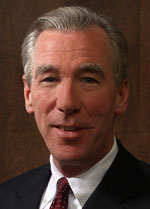I’m teaching a slightly unusual college freshman course this spring called “The Virtues.” It’s not quite philosophy or theology, at least not after the typical academic fashion. It’s an attempt to present the virtues as something students might want to practice and not just study.
We have spent a few weeks on each of the cardinal and theological virtues, looking at how they are presented in art, novels, movies and on television. We have also looked at their corresponding vices.
The discussion of some virtues is relatively simple for even a pagan philosopher like Aristotle. Virtues are good habits acquired through repeated practice — as with temperance, for example. But theological virtues are more complex. One cannot acquire the virtue of hope by simply hoping and hoping.
Theologians say that hope is a yearning for union with God — an abandonment of oneself in the hands of him whom we do not see. And it is a virtue we will no longer need in heaven, where it is replaced with its perfect fulfillment.
[hotblock]
Poet Emily Dickinson pictured hope as “the thing with feathers” that alights with grace and “perches in the soul.” I think we have lost the understanding of this beautiful image, and our loss is symptomatic of a profound lack of hope. Instead of putting our hope in God, who cannot disappoint us, we place it in our endlessly disappointing selves.
There’s an old name for this affliction: presumption. The Pelagian heresy, against which St. Augustine fought in the fifth century, held that we can attain both perfection and salvation by our own merit, without divine grace. One who thinks this way believes he has certainty already, and no need for hope.
The modern variations of Pelagianism are too numerous to list, but they all have in common the presumption that we can solve any problem if only we apply the right method.
Time magazine recently ran a cover story on “mindfulness,” the latest fad for coping with anxiety, depression and stress. Its proponents avoid talk of spirituality, the article said. They believe that if they work and parent “mindfully,” they can sharpen their attention just like they can build up any muscle that strengthens with exercise.
If mindfulness is the modern virtue, it’s like temperance, not hope, in that one can simply become better by working at it. The same confidence in our ability characterizes the practice of cognitive therapy, behavioral therapy and psychopharmacology.
I don’t mean to scoff at these modern practices. Method, formula and science can get us some distance toward solving the problems we encounter in life. The problem is that no amount of human effort can solve all of our problems.
We need God’s help, but spiritual talk is unfashionable. New York magazine expressed something like disdain last fall when U.S. Supreme Court Justice Antonin Scalia said he believed in the devil.
No one dared criticize Pope Francis when he professed the same belief recently, but there were polite coughs to cover the sound. The idea that God is active in our lives is equally unfashionable, even among professing Christians. And yet if he is not, there is nothing to hope for.
St. Augustine argued against Pelagius that we can only find real happiness with the grace of the Holy Spirit, who appeared at Christ’s baptism in the form of a dove. We cooperate in the practice of the virtue of hope when, instead of filling ourselves with more self, we make room in our souls for the thing with feathers to perch.
***
Garvey is president of The Catholic University of America in Washington.
PREVIOUS: A possible answer about why we suffer
NEXT: St. John Paul II quickly became leading teacher of family life




Share this story